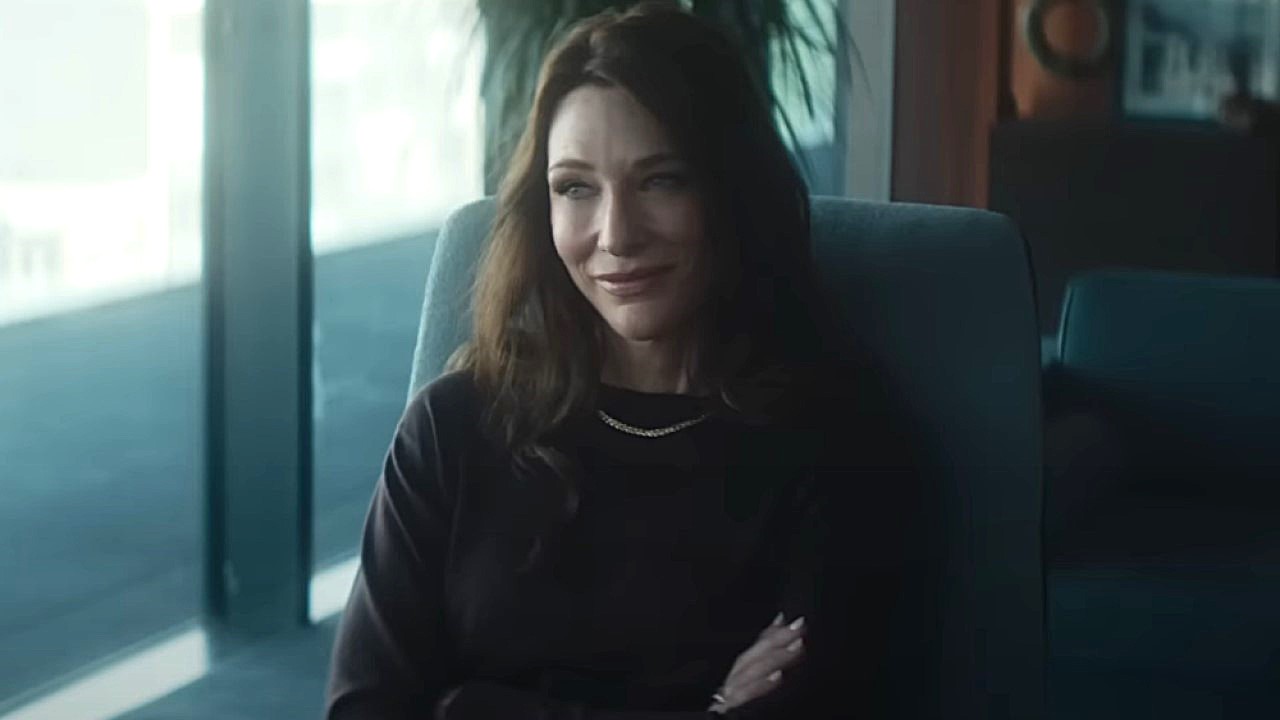The Chronicles of Narnia franchise wraps up with a slow whimper in Voyage of the Dawn Treader, a perfectly fine film that's also a fairly unsatisfying conclusion to a series that's never quite reached greatness. With Michael Apted taking over for director Andrew Adamson and the oldest two Pevensie children missing this time, Dawn Treader feels very much like a straining sequel, even though it's based fairly faithfully on C.S. Lewis's third book in the seven-novel series. And while Apted and writers Christopher Markus and Stephen McFeely hammer out a narrative even stronger than the episodic series of tales Lewis offered in the book, the story and especially the character arcs feel perfunctory and designed by committee. Heavily computerized and following the path trod by decades of children's fantasy stories, Dawn Treader is serviceable enough, but certainly not an argument for any further trips into Narnia.
The story starts in the same wartime England setting as the previous two films, but with Peter and Susan shepherded to safety in America the younger Pevensies Lucy (Georgie Henley) and Edmund (Skandar Keynes) are stuck staying with their aunt and abominable younger cousin Eustace (Will Poulter). When all three are magically swept back to Narnia they arrive on board the Dawn Treader, a great wooden ship captained by Prince Caspian (Ben Barnes-- remember him?) on a expedition to explore the far reaches of the Narnian kingdom. Lucy and Edmund immediately take to life on board-- they're still High King and High Queen of Narnia, after all-- while Eustace remains a pill, even after the journey starts taking them through swordfights, mysterious abandoned islands, malevolent green mist and an ill-tempered dragon. Well, that dragon actually turns out to be Eustace, transformed by enchanted gold items, and he's a whole lot more useful with his scales and fiery breath.
Recognizing that the main story, about tracking down seven missing Lords and rescuing a bunch of anonymous people from that evil green mist, has no emotional stakes for our lead characters, Apted weaves a coming-of-age thread for both Lucy and Edmund about each of them trying to live up to the legacy of their older siblings. These subplots work better in the smaller moments, such as Edmund and Caspian struggling over command of the Dawn Treader or Lucy looking at herself doubtfully in the mirror, but lose their potency when brought to the forefront. A dream sequence in which Lucy imagines herself literally turning into Susan has a nightmarish strength, but when Aslan the Lion (Liam Neeson's voice) appears to her in the dream to comfort her, the idea goes from intriguing character development to a kind of self-help-for-kids literalness. Poulter's Eustace is more engaging than the other kids both because of his comedy-- Poulter is successfully over-the-top for the most part-- and the fact that he goes through a character arc that's directly linked to the film's plot. Eustace actually returns to Narnia in two follow-up stories, unlike Edmund and Lucy, and Poulter almost makes you want to see those adventures, though now that he's matured Eustace is likely to be as dull a character as his Pevensie cousins.
The Narnia films have always been old-fashioned and earnest, just like the books that inspired them, but aside from a few moments of slapstick and some endearingly goofy creatures the Dawn Treader encounters, the film feels so serious and faux-mythic that it never allows the audience inside. When it comes to the 3D that becomes very literal-- press those glasses as tightly to your face as you like, but the post-conversion-3D never manages to pop, even in the otherwise impressive action sequences late in the film. Voyage of the Dawn Treader doesn't exactly kill the Narnia movie franchise, as Lewis's series was never exactly ready-made for film adaptation, but its plodding pace and sense of perfunctory magic rather than real wit lays bare all the reasons the franchise has never really taken off even in the previous films.
Staff Writer at CinemaBlend












